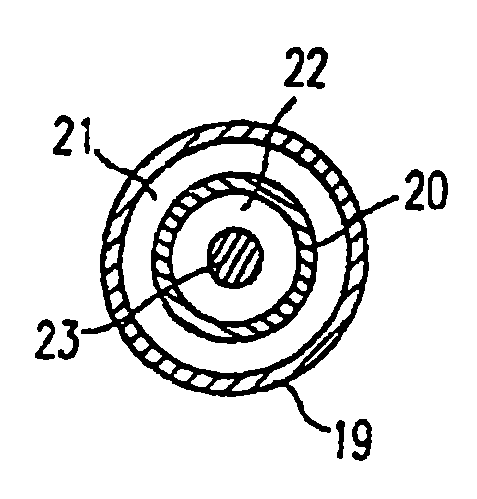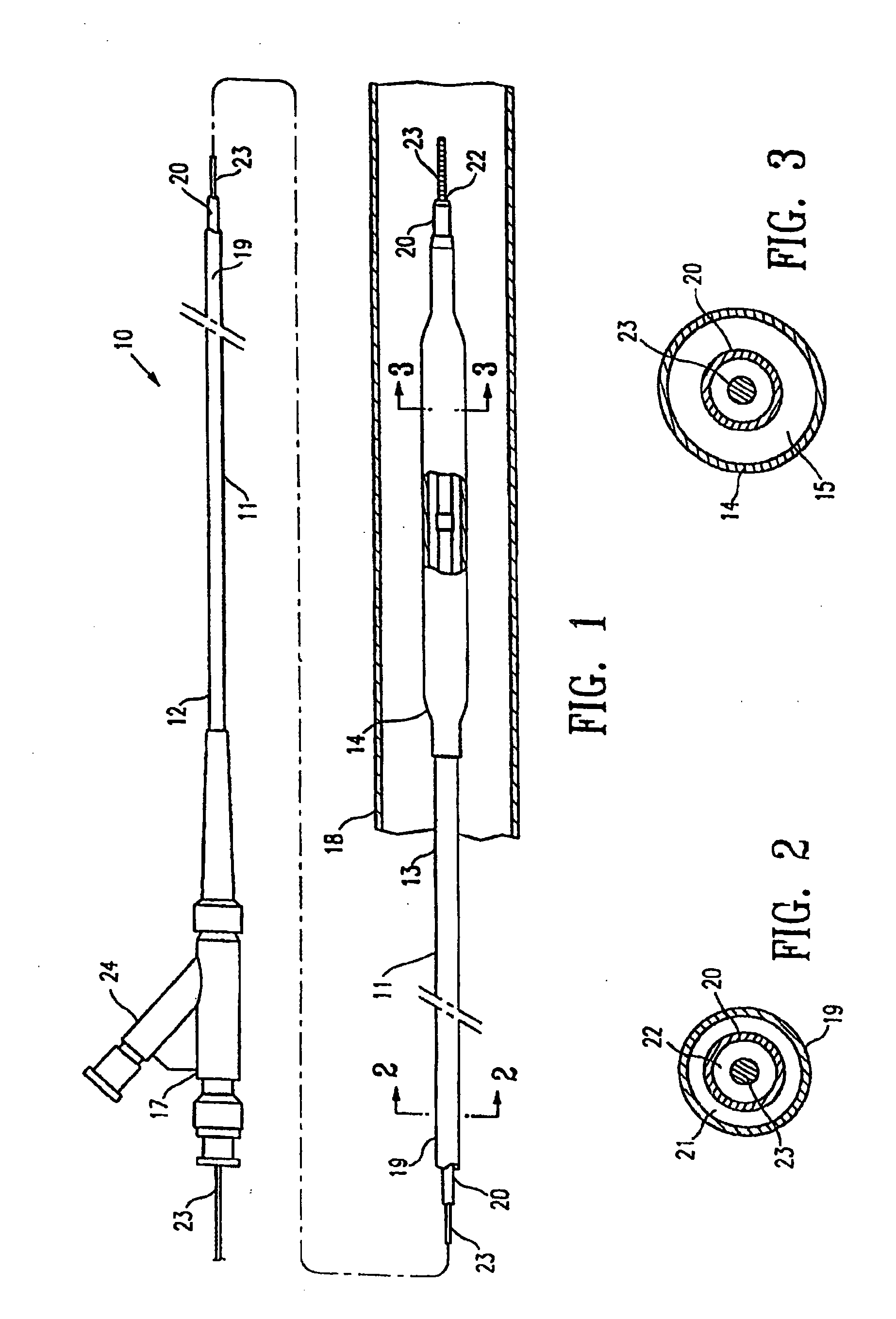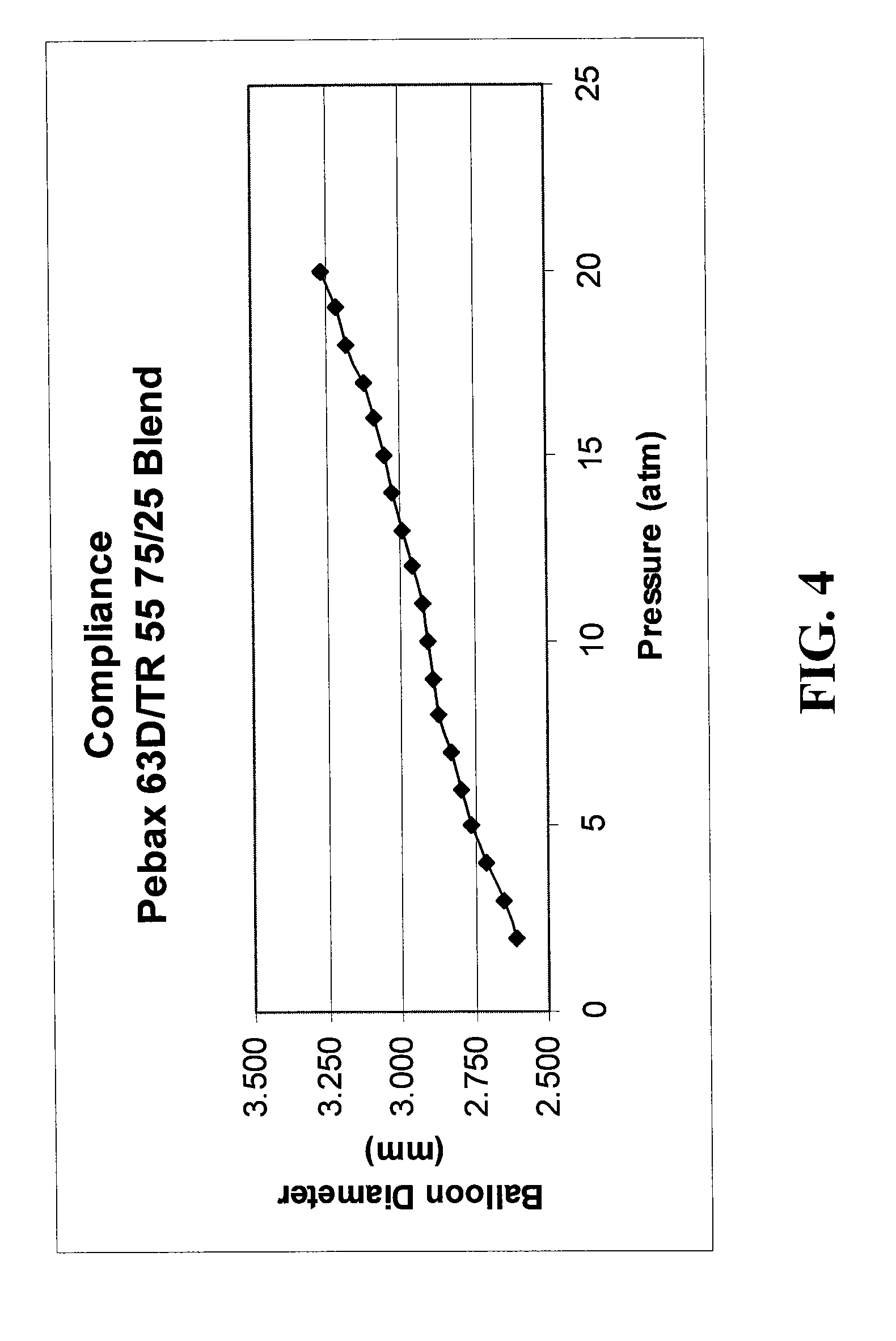Low compliant catheter tubing
- Summary
- Abstract
- Description
- Claims
- Application Information
AI Technical Summary
Benefits of technology
Problems solved by technology
Method used
Image
Examples
example 1
[0030]A blended composition of 75% Pebax 63D and 25% EMS TR 55 (transparent amorphous nylon) was constructed into ten sample catheter balloons according to the present invention, which produced an average working pressure range of eight to nine atmospheres for a 2.75 mm balloon. At five atmospheres, the balloon is about 2.75 mm (nominal diameter) and at thirteen atmospheres the balloon has grown radially roughly 0.25 mm to 3.00 mm (quarter size diameter). As shown in FIG. 4, this results in a compliance performance that is flatter in the operating range of the balloon, a desired characteristic. The balloon in Example 1 has a compliance of about 0.023 mm / atm between 5 atmospheres and 18 atmospheres, i.e., from nominal to the rated burst pressure of the balloon, where the nominal pressure is the pressure required to expand the balloon to its working diameter, and the rated burst pressure, calculated from the average rupture pressure, is the pressure at which 95% of the balloons can be...
PUM
| Property | Measurement | Unit |
|---|---|---|
| Percent by mass | aaaaa | aaaaa |
| Pressure | aaaaa | aaaaa |
| Percent by mass | aaaaa | aaaaa |
Abstract
Description
Claims
Application Information
 Login to View More
Login to View More - R&D
- Intellectual Property
- Life Sciences
- Materials
- Tech Scout
- Unparalleled Data Quality
- Higher Quality Content
- 60% Fewer Hallucinations
Browse by: Latest US Patents, China's latest patents, Technical Efficacy Thesaurus, Application Domain, Technology Topic, Popular Technical Reports.
© 2025 PatSnap. All rights reserved.Legal|Privacy policy|Modern Slavery Act Transparency Statement|Sitemap|About US| Contact US: help@patsnap.com



